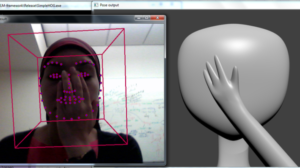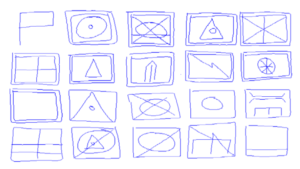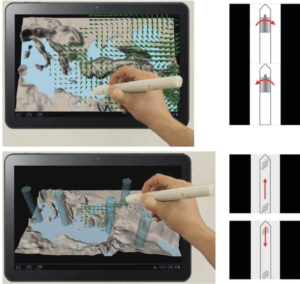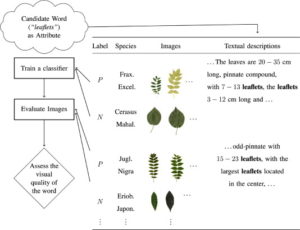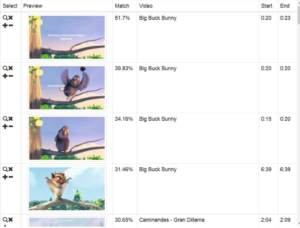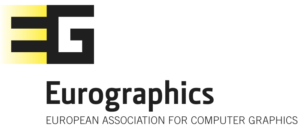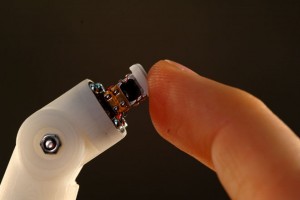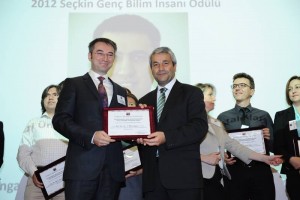We are interested in enabling natural human-computer interaction by combining techniques from machine learning, computer vision, computer graphics, human-computer interaction and psychology. Specific areas that we focus on include: multimodal human-computer interfaces, affective computing, pen-based interfaces, sketch-based applications, intelligent user interfaces, applications of computer vision and machine learning to solving real world problems. Browse through the publications and research pages to get a flavor of IUI@Koc.
Individuals with Autism Spectrum Conditions (ASC) have marked difficulties using verbal and non-verbal communication for social interaction. The ASC-Inclusion project helps children with ASC by allowing them to learn how emotions can be expressed and recognised via playing games in a virtual world. The platform assists children with ASC to
Read more
The increasing availability of pen-based tablets, and pen-based interfaces opened the avenue for computer graphics applications that can utilize sketch recognition technologies for natural interaction. This has led to an increasing interest in sketch recognition algorithms within the computer graphics community. However, a key problem getting in the way of
Read more
With the emergence of pen-enabled tablets and mobile devices, stylus-based interaction has been receiving increasing attention. Unfortunately, styluses available in the market today are all passive instruments that are primarily used for writing and pointing. In this paper, we describe a novel stylus capable of displaying certain vibrotactile and inertial
Read more
Attributes of objects such as “square”, “metallic”, and“red” allow a way for humans to explain or discriminate object categories. These attributes also provide a useful intermediate representation for object recognition, including support for zero-shot learning from textual descriptions of object appearance. However, manual selection of relevant attributes among thousands of
Read more
This paper introduces the IMOTION system, a sketch-based video retrieval engine supporting multiple query paradigms. For vector space retrieval, the IMOTION system exploits a large variety of lowlevel image and video features, as well as high-level spatial and temporal features that can all be jointly used in any combination. In
Read more
Recently there has been a growing interest in sketch recognition technologies for facilitating human-computer interaction. Existing sketch recognition studies mainly focus on recognizing pre-defined symbols and gestures. However, just as there is a need for systems that can automatically recognize symbols and gestures, there is also a pressing need for
Read more
Hyperparameters are among the most crucial factors that affect the performance of machine learning algorithms. In general, there is no direct method for determining a set of satisfactory parameters, so hyperparameter search needs to be conducted each time a model is to be trained. In this work, we analyze how
Read more
The development of robots that can physically cooperate with humans has attained interest in the last decades. Obviously, this effort requires a deep understanding of the intrinsic properties of interaction. Up to now, many researchers have focused on inferring human intents in terms of intermediate or terminal goals in physical
Read more
Open Postdoctoral and Doctoral Positions in Automatic Emotion Recognition and Machine Learning. Check out the open positions page.
Read more
Dr. Sezgin has received the Outstanding Young Scientist Award from the Turkish Academy of Sciences (TÜBA-GEBİP).
Read more
